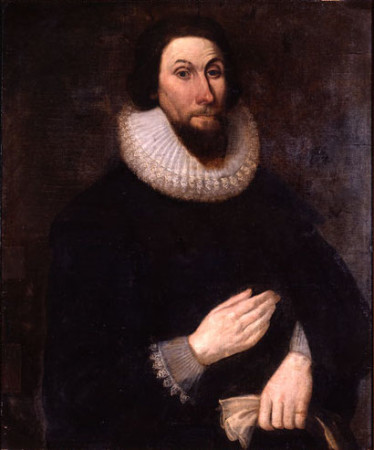 The road I drive on to get in and out of New York City is called the Hutchinson River Parkway. It was named, of course, for the Hutchinson River. But I wonder how many people know who the Hutchinson River was named after.
The road I drive on to get in and out of New York City is called the Hutchinson River Parkway. It was named, of course, for the Hutchinson River. But I wonder how many people know who the Hutchinson River was named after.
Anne Hutchinson, that’s who. If she hadn’t been a woman, she would have been a powerful minister at the level of her contemporaries, John Winthrop, Roger Williams, and John Cotton. But she was a woman, and in 1637 she was banished from the Massachusetts Bay Colony and excommunicated by the Puritan church because she was acting like a minister. Also, she espoused a ‘covenant of grace” rather than a “covenant of works.” If you think that sounds like a petty distinction, it is, at least to us. But the Massachusetts Bay Colony was not known for its religious tolerance. Also, she’d assembled a bunch of women in her large home several days a week for the purpose of “resolving questions of doctrine and expounding scripture” (in the words of John Winthrop). In so doing, Winthrop said, she had “troubled the peace of the Commonwealth.”
Anne and her husband and large family (she’d had fifteen kids, not all of whom survived infancy) and many of Anne’s followers settled Portsmouth, Rhode Island, in 1638. All the men signed a pledge called the Portsmouth Compact, but Anne couldn’t sign the pledge to the colony she founded, because she was a woman.
After her husband died in 1642, Anne and her surviving children moved to New Netherland, in what is now part of the Bronx. In 1643, Anne and all but one of her children were killed by Indians who were battling with the Dutch.
